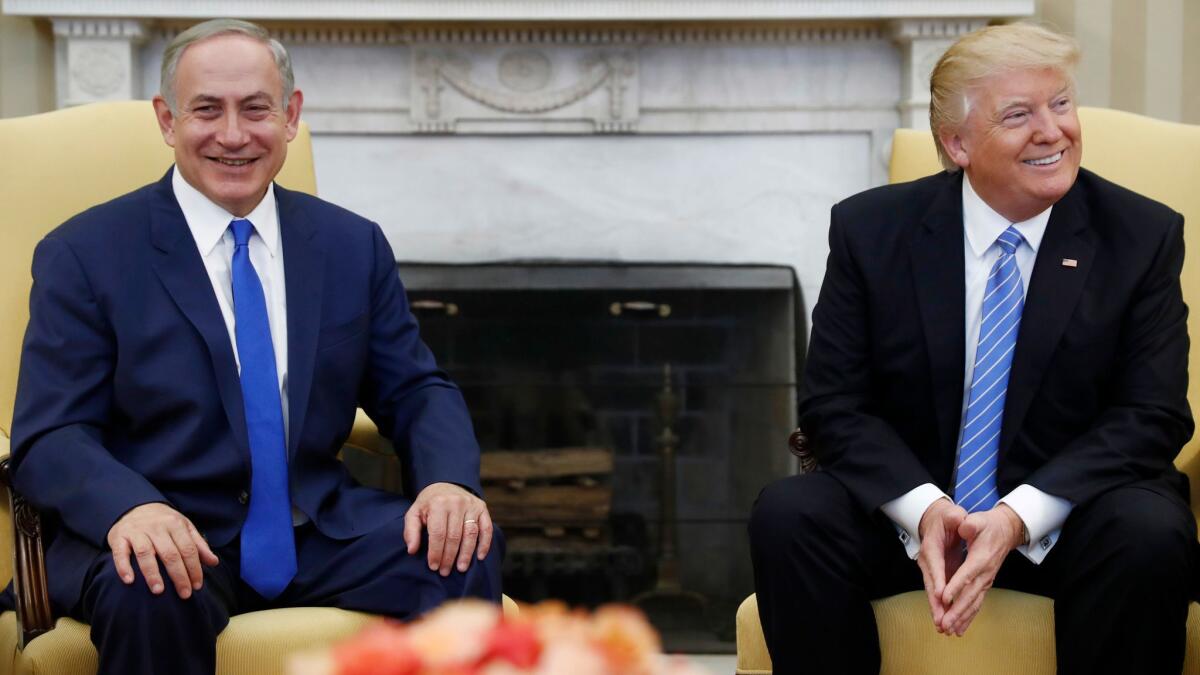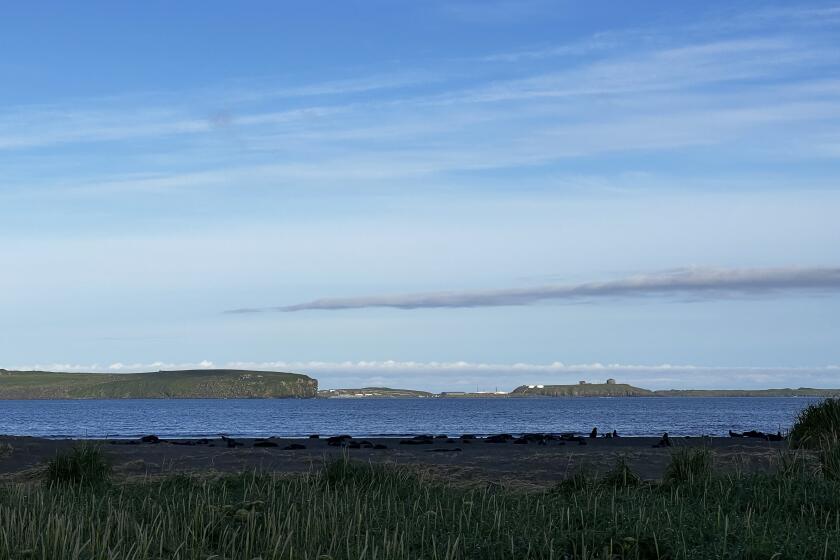Israel’s conservatives face tough lesson: Trump’s policies may not be so different from Obama’s approach

When Donald Trump was elected president in November, euphoric Israeli right-wing politicians saw it as a green light to annex parts of the West Bank and declare an end to the idea of a Palestinian state.
But since Prime Minister Benjamin Netanyahu agreed recently to rein in expansion of settlements in the West Bank at the request of the U.S., many of the same politicians are wondering if the Trump administration may turn out to be disturbingly similar, in their eyes at least, to the Obama administration.
“This unusual president is basically prescribing the same-old same-old with an inevitable failure at the end,’’ said Yishai Fleisher, the international spokesman for the Israeli settlements in the West Bank city of Hebron. “It underwhelms.’’
During the election campaign, Trump won an enthusiastic following on the Israeli right by pledging to move the U.S. Embassy from Tel Aviv to Jerusalem and appointing an ambassador, bankruptcy lawyer David Friedman, who is a patron of the settlement of Beit El, next door to the West Bank city of Ramallah.
Trump’s remark during a Feb. 15 news conference with Netanyahu in which the president appeared to back away from the United States’ long-standing commitment to a two-state solution for peace between Israelis and Palestinians further stoked expectations among conservative politicians for a break with the past.
Some conservatives hoped the administration would give Israel carte blanche for expansion in the occupied West Bank, which Palestinians claim as the site of a future state.
Instead of offering free rein in the West Bank, however, Trump envoy Jason Greenblatt has met with Netanyahu to talk about scaling back settlement expansion.
Though neither side announced a formal agreement, Netanyahu informed Israeli ministers that he had decided to set limits on new construction in deference to the wishes of the new administration.
Standing next to Jordan’s King Abdullah II at the White House on Wednesday, Trump said he was working “very, very hard” to bring peace between Israelis and Palestinians.
Limitations on Israeli settlement growth have been used as carrots by previous U.S. administrations to restart peace negotiations.
Many Israeli conservatives acknowledged that it’s too early to determine how Trump administration policies will play out over time, and that ultimately he may lean further right than his predecessors, but it’s not too early to worry.
In a tweet last week, Israeli Education Minister Naftali Bennett, the leader of the pro-settler Jewish Home party, complained that Israel had missed a “strategic” opportunity in meetings with Trump and his representatives to push to annex parts of the West Bank and block the establishment of a Palestinian state.
Bennett shied away from criticizing Trump, but accused Netanyahu of being too “passive” in talks with the U.S. administration and focusing on tactical maneuvering rather than pushing a “paradigm shift’’ in talks with Trump.
Bennett, a rival to Netanyahu for leadership of Israel’s right wing, said in the tweet that the prime minister should formally retract a policy speech at Bar-Ilan University in 2009 in which he endorsed the idea of a Palestinian state.
Fleisher, the spokesman for the Hebron settlers, also said Netanyahu was more to blame than Trump for a less aggressive approach than what the far right expected.
Despite the deflated expectations among some conservatives, Israel recently approved building the first new settlement deep in the West Bank since the 1990s — a potential milestone for the settler movement.
The move generated international condemnation, including statements of concern from the United Nations and the European Union. The groups, as well as Palestinians, said the new settlement would not help peace efforts.
“All Israeli settlements are illegal and we are not going to accept any formula that aims at legitimizing the presence of Israeli colonies on occupied Palestinian land,” Saeb Erekat, the chief Palestinian negotiator, said in a statement.
Palestinians and much of the international community consider all Israeli building in the occupied West Bank and East Jerusalem as illegal. The United Nations, the U.S. and European countries have warned that settlement expansion was endangering prospects for peace through a two-state solution for Israelis and Palestinians.
Palestinian officials are demanding a full settlement freeze as a precondition to entering negotiations.
Nabil Shaath, an advisor to Palestinian Authority President Mahmoud Abbas, said the new president is “unpredictable” and may produce “something worthwhile.’’
In an interview Monday with the pro-settler radio station Arutz 7, Jewish Home party parliament member Shuli Mualem said she had hoped Israel’s government would embark on a building campaign throughout the West Bank rather than agreeing to limitations.
Oded Revivi, chief foreign envoy of the Yesha Council, said in a phone interview that the friction experienced with the Obama administration had passed, but that there’s been a change in tone in Trump since he entered office.
The settler leader acknowledged that expectations by some for a free hand in the West Bank were unrealistic. It’s also too early to say where the new administration’s policies would lead, he said.
“America has its own interests, and we can’t expect to get everything that we want,’’ he said. “Time will tell whether this new administration keeps up with expectations.’’
Mitnick is a special correspondent.
ALSO
Everything President Trump has tweeted (and what it was about)
Trump administration could upend decades of U.S. policy on Israel and Palestinians
White House backs away from two-state solution in Israeli-Palestinian conflict
More to Read
Sign up for Essential California
The most important California stories and recommendations in your inbox every morning.
You may occasionally receive promotional content from the Los Angeles Times.










